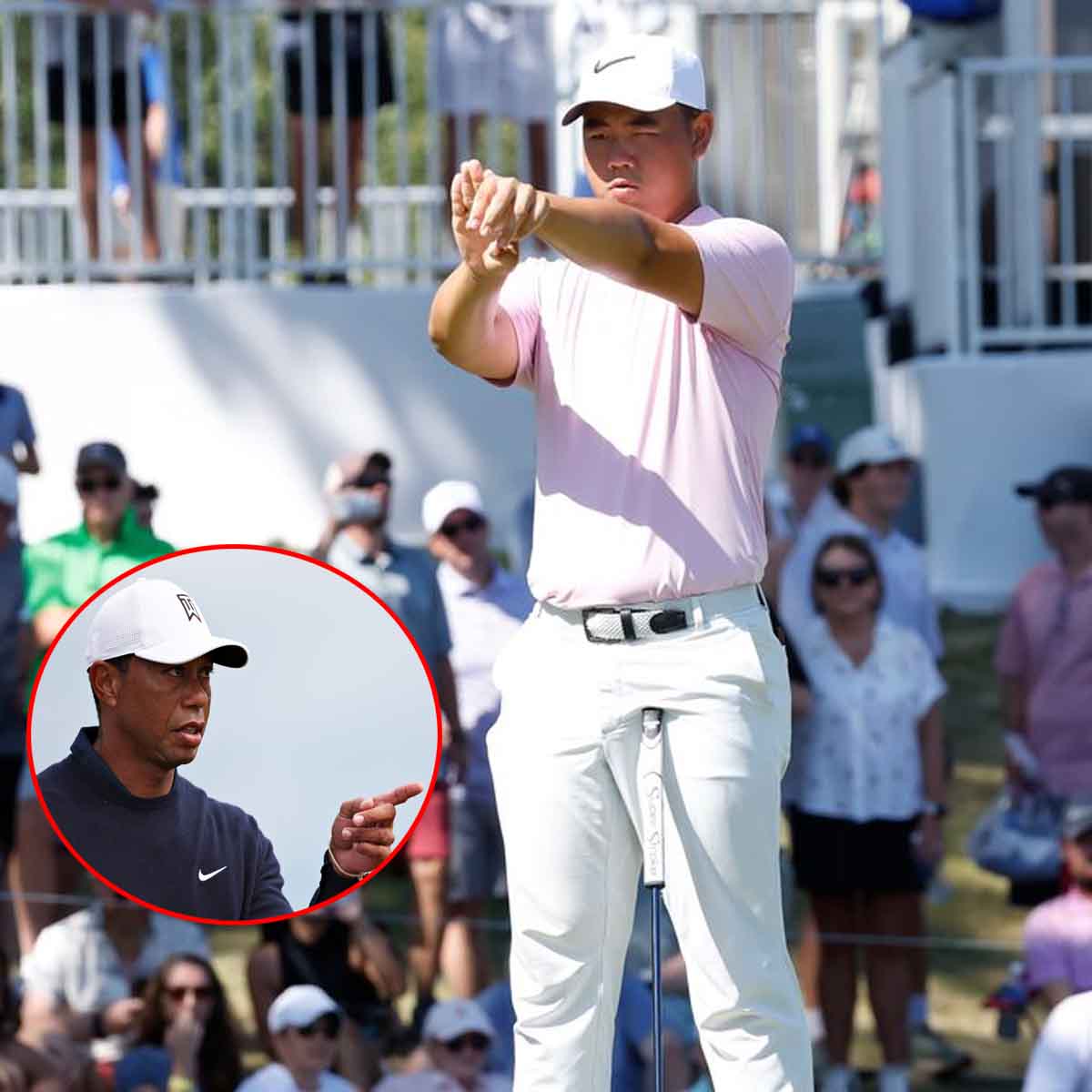Which of the three current legends of the NBA has the best resume in elimination games?
LeBron James, Michael Jordan, and Kobe Bryant, three of the most iconic figures in the history of the NBA, have left an indelible mark on the sport. They are celebrated not only for their incredible skills but also for their unwavering determination and remarkable consistency, especially when their teams’ seasons hang in the balance. Precisely, it will be interesting to look at each superstar’s ability in elimination games in the postseason.
This comparative analysis will not only examine the statistical performances of LeBron James, Michael Jordan, and Kobe Bryant in elimination games but will also delve into the intangibles that set them apart. After seeing how LeBron was far greater than Stephen Curry and Kevin Durant in elimination games, here is the ultimate comparison between James, Jordan, and Bryant in the most important games in the playoffs.
Points
LeBron James – 33.7 PPG (3 Points)
Michael Jordan – 31.3 PPG (2 Points)
Kobe Bryant – 22.3 PPG (1 Point)
LeBron James’ 33.7 PPG in elimination games is not only the highest among the three superstars but also a testament to his incredible ability to rise to the occasion when his team’s playoff hopes are on the line. His scoring prowess in these high-pressure situations reflects his versatility as a player for the Miami Heat and Cleveland Cavaliers. This exceptional scoring average speaks to his consistency and his willingness to shoulder the offensive load, making him a true force to be reckoned with in clutch moments.
Michael Jordan, often regarded as the greatest player of all time, demonstrated his scoring prowess in elimination games by averaging 31.3 PPG. While this average is slightly lower than LeBron’s, it’s important to note that Jordan’s era featured a more physically demanding style of play. His ability to thrive in these high-pressure situations played a pivotal role in leading his Chicago Bulls to six NBA championships. His 31.3 PPG in elimination games represents his enduring legacy as the ultimate closer in the game.
Kobe Bryant, the “Black Mamba,” displayed his scoring ability by averaging 22.3 PPG in elimination games. While his scoring average in these scenarios is lower compared to LeBron and Jordan, it’s important to consider the context in which he played. Kobe faced the challenge of living up to the high expectations set by the Lakers’ storied history and was often tasked with carrying his team offensively. Still, his scoring mark is last on the list of three stars, mainly due to Shaquille O’Neal’s presence alongside him with the Los Angeles Lakers early on.
Rebounds
LeBron James – 10.7 RPG (3 Points)
Michael Jordan – 7.9 RPG (2 Points)
Kobe Bryant – 5.8 RPG (1 Point)
LeBron James’ ability to contribute significantly in rebounding during elimination games is a testament to his all-around basketball skills. His 10.7 RPG in these high-pressure situations not only reflects his scoring ability but also his capacity to impact the game in multiple facets. Rebounding is often an overlooked aspect of his game, but these statistics underscore his willingness to do whatever it takes to ensure his team’s success. This versatility and commitment to helping in all aspects of the game contribute to his well-rounded greatness.
Michael Jordan’s 7.9 RPG in elimination games, while lower than LeBron’s, is still impressive for a shooting guard. It demonstrates his tenacity and determination, especially in grabbing key rebounds during crucial moments. Jordan’s ability to rise to the occasion in every facet of the game, including rebounding, played a pivotal role in his team’s success. His 7.9 RPG in elimination games further solidifies his reputation as a player who could be relied upon in any situation.
Kobe Bryant’s 5.8 RPG in elimination games, while the lowest among the three, still signifies his willingness to contribute beyond scoring. As a shooting guard and small forward, he often had to compete against bigger opponents for rebounds. His ability to secure nearly six rebounds per game in elimination situations reflects his competitiveness and determination to help his team in any way possible. While not as dominant in this aspect as LeBron and Jordan, Kobe’s impact on the game was felt across the board but The King has the advantage among all three again.
Assists
LeBron James – 7.5 APG (3 Points)
Michael Jordan – 7.0 APG (2 Points)
Kobe Bryant – 3.5 APG (1 Point)
LeBron James’ 7.5 APG in elimination games highlights his remarkable playmaking ability. He has consistently demonstrated his capability to impact the game not only as a scorer and rebounder but also as a primary playmaker. His willingness to involve his teammates and create scoring opportunities for them sets him apart, making him a complete player who can influence the game in multiple ways. LeBron’s ability to facilitate in high-pressure situations underlines his basketball IQ and leadership on the court.
Michael Jordan’s 7.0 APG in elimination games demonstrates his ability to not only score but also create for his teammates when the stakes are high. Jordan’s playmaking was often overshadowed by his scoring prowess, but these statistics reveal his versatility as a player. He was more than just a scoring machine; he could also set up his teammates, making his teams even more dangerous in elimination situations.
Kobe Bryant’s 3.5 APG in elimination games, while the lowest among the three, should not overshadow his capacity to contribute as a playmaker. As a shooting guard, Kobe often played a scoring-oriented role, but these statistics reflect his ability to create for his teammates when needed. His lower assist numbers are partly due to his role and the era in which he played, but they should not diminish his importance as a playmaker in critical situations. Since LeBron James is the best passer in the group, unsurprisingly, he leads the pack.
Michael Jordan – 1.3 BPG (3 Points)
LeBron James – 1.0 BPG (2 Points)
Kobe Bryant – 0.6 BPG (1 Point)
Michael Jordan’s 1.3 BPG in elimination games is impressive for a guard, underscoring his defensive prowess in crucial moments. His ability to contribute with blocks demonstrates his tenacity and his capacity to make game-changing plays on both ends of the floor. Jordan’s defensive impact in these high-pressure situations is a testament to his well-rounded game and his ability to make significant plays when it matters most.
LeBron James’ 1.0 BPG in elimination games also highlights his defensive capabilities, particularly as a forward. His presence on the defensive end, including shot-blocking, is a crucial aspect of his game. While his average is slightly lower than Jordan’s, it still reflects his commitment to defense during pivotal moments and his ability to protect the rim effectively.
Kobe Bryant’s 0.6 BPG in elimination games, while the lowest among the three, should not diminish his defensive contributions. As a guard, Kobe’s role was more perimeter-oriented, and he was often tasked with guarding the opposing team’s best perimeter players. While his block average is lower, it reflects his efforts to disrupt opponents’ shots and create turnovers when needed.
In summary, the block statistics in elimination games demonstrate the defensive abilities of Michael Jordan, LeBron James, and Kobe Bryant. While LeBron James is the largest player in terms of physical size, Jordan actually managed a higher BPG average and takes this category.
Steals
Michael Jordan – 2.0 SPG (3 Points)
LeBron James – 1.7 SPG (2 Points)
Kobe Bryant – 1.2 SPG (1 Point)
Michael Jordan’s 2.0 SPG in elimination games highlights his exceptional ability to disrupt the opposing team’s offense. His capacity to generate steals in high-pressure situations underlines his defensive prowess and his knack for creating turnovers. Jordan’s steals not only led to extra possessions for his team but also demoralized his opponents, making him a defensive force in clutch moments.
LeBron James’ 1.7 SPG in elimination games reflects his defensive impact as a forward. While his steal average is slightly lower than Jordan’s, it still underscores his ability to read passing lanes, create turnovers, and transition into fast-break opportunities. LeBron’s defensive versatility and playmaking extend to his ability to generate steals when it matters most.
Kobe Bryant’s 1.2 SPG in elimination games, while the lowest among the three, should not diminish his contributions on the defensive end. As a guard, he often had defensive responsibilities against elite perimeter players. His 1.2 SPG showcases his ability to disrupt passing lanes and create turnovers. While not as prolific in this aspect as Jordan and LeBron, Kobe’s defensive prowess remains a vital part of his legacy, although Mike takes this category.
Field Goal Percentage
LeBron James – 49.2% (3 Points)
Michael Jordan – 45.8% (2 Points)
Kobe Bryant – 41.4% (1 Point)
LeBron James’ 49.2% field goal percentage in elimination games is the highest among the three superstars, demonstrating his efficiency in high-pressure situations. This high shooting percentage indicates his ability to make smart shot selections and convert them at an impressive rate. LeBron’s efficiency from the field underscores his ability to perform consistently and effectively when it matters most, helping his teams advance in the playoffs.
Michael Jordan’s 45.8% field goal percentage in elimination games, while slightly lower than LeBron’s, is still highly respectable. His scoring ability and capacity to make tough, contested shots are well-documented. Jordan’s field goal percentage in clutch moments reflects his ability to deliver under pressure, even if it’s not quite as efficient as LeBron’s.
Kobe Bryant’s 41.4% field goal percentage in elimination games, while the lowest among the three, should not overshadow his ability to make significant shots in critical situations. As a player known for his scoring prowess, Kobe often took challenging shots, which may have affected his field goal percentage. Nevertheless, his ability to make difficult shots when his team needed them is a hallmark of his career. Still, as the most efficient all-around player on the list, Jordan takes the edge in field goal percentage.
3-Point Percentage
LeBron James – 36.3% (3 Points)
Michael Jordan – 33.3% (2 Points)
Kobe Bryant – 28.1% (1 Point)
LeBron James’ 3-point shooting percentage of 36.3% in elimination games demonstrates his effectiveness from beyond the arc during high-pressure situations. His ability to connect from long range is a valuable asset, especially in today’s NBA where 3-point shooting is highly prized. LeBron’s 3-point accuracy underlines his capacity to stretch the floor and create scoring opportunities, contributing to his team’s success in crucial moments.
Michael Jordan’s 3-point shooting percentage of 33.3% in elimination games showcases his ability to make shots from beyond the arc, although it’s slightly lower than LeBron’s. Jordan was not known for his 3-point shooting as much as his mid-range and inside game, but he could still deliver from long range when needed. His efficiency from beyond the arc in clutch situations further solidifies his reputation as a versatile scorer.
Kobe Bryant’s 3-point shooting percentage of 28.1% in elimination games, while the lowest among the three, should not overshadow his willingness to attempt and make 3-pointers in crucial moments. Kobe’s scoring arsenal included a wide range of shots, and his 3-point shooting, while not as efficient, added another dimension to his game. Despite being considered the worst natural shooter, James has the highest three-point percentage and certainly benefitted from playing in the modern era.
Win-Loss Record
LeBron James – 14-12 (3 Points)
Kobe Bryant – 9-10 (2 Points)
Michael Jordan – 6-7 (1 Point)
LeBron James holds the best win-loss record among the three superstars, with 14 wins and 12 losses in elimination games. This record reflects his consistency in leading his teams to success in high-pressure situations. It’s a testament to his ability to perform when it matters most, consistently taking his teams deep into the playoffs and making a significant impact on the outcome.
Kobe Bryant’s win-loss record of 9 wins and 10 losses in elimination games signifies his ability to win when the odds are against him. While his record is not as favorable as LeBron’s, it underscores his competitiveness and determination to lead his team in win-or-go-home situations. Kobe’s ability to secure nine victories in elimination games adds to his legacy as a clutch performer.
Michael Jordan’s win-loss record of 6 wins and 7 losses in elimination games, while the lowest among the three, should not diminish his legacy. His career featured a different era of basketball and different challenges, yet he still secured crucial wins in high-pressure situations. Jordan’s ability to perform under pressure is well-documented, and his impact on the outcome of games goes beyond just his win-loss record as he normally ended the competition when it truly mattered: in the NBA Finals when he went 6-0.
Total Games
LeBron James – 26 Games (3 Points)
Kobe Bryant – 19 Games (2 Points)
Michael Jordan – 13 Games (1 Point)
LeBron James has played the most elimination games among the three superstars, with a total of 26 games. This extensive experience in high-pressure situations reflects his remarkable consistency in leading his teams deep into the playoffs. It underscores his ability to perform at a high level when the stakes are the highest, adding to his legacy as one of the game’s all-time greats.
Kobe Bryant played 19 elimination games, showcasing his ability to perform in clutch scenarios. While he played fewer games than LeBron, his 19 games in these high-pressure situations highlight his longevity in the playoffs and his competitiveness. His contributions in these games contributed to his status as a legendary player.
Michael Jordan played 13 elimination games during his career. While he played the fewest games among the three, it’s important to consider that Jordan’s career occurred during a different era, and his win-loss record in these games speaks to his ability to perform under pressure. His impact on the game goes beyond the number of games played.
Who Is The Best Player In Elimination Games?
1. LeBron James (25 Points)
2. Michael Jordan (18 Points)
3. Kobe Bryant (11 Points)
Based on the points assigned for various statistics and factors in elimination games, it appears that LeBron James comes out as the player with the highest overall score of 25 points. LeBron’s well-rounded game, which includes scoring, rebounding, playmaking, defensive contributions, and his impressive win-loss record in elimination games, suggest his excellence in these high-pressure scenarios.
Michael Jordan follows with 18 points, showcasing his legendary status as one of the greatest players in the history of the sport. While his win-loss record in elimination games may not be as strong as LeBron’s, his scoring ability, steals, and efficiency from the field are noteworthy.
Kobe Bryant, with 11 points, also demonstrates his greatness in elimination games. Despite playing fewer games and having a slightly lower win-loss record, his scoring prowess, defensive contributions, and leadership in clutch moments are highly respected.
The GOAT debate might support LeBron James when looking at this comparison but it is important to note that Michael Jordan was not remembered for his elimination games performances as much as James but rather for his appearances and dominance in Finals games. Meanwhile, the years of playing with Shaquille O’Neal might have hurt Kobe Bryant’s stats. Regardless, James does win an important category over two other all-time great legends.






